Abhishek Mande
Anuradha Vaidyanathan is India first Ironman athlete. The multi-tasking 30-year-old PhD holder and entrepreneur tells us about the challenges she's had to face and how she made it.
Very few of us may have even heard of the sporting event she represents. Fewer are probably aware of the extreme physical endurance it demands.
Ironman one-day triathlon that involves a 3.8km swim, 180km bicycle ride and a 42.2km run. The relatively 'easier' triathlon event is the Ultraman -- a three-day stage race that involves a 10km swim, 420km bicycle ride and an 84.4km run
Anuradha Vaidyanathan is India's first Ironman athlete and one of the only 450 people in the world to have finished an Ultraman.
In 2009, Vaidyanathan finished the Ultraman in Canada, was placed 6th and was the youngest finisher. Barely three weeks later, she completed the Ironman Canada and became the only athlete to do so in the history of the race.
When she isn't breaking stereotypes in athletics, Vaidyanathan runs an Intellectual Property firm and teaches at IIT-Ropar.
In an interview, Anuradha Vaidyanathan tells us about the challenges in participating in a sport that few have heard of and how she overcomes them.
Could you tell us what is a triathlon and what does a triathlete do?
A triathlon is a three-sport event that involves swimming, biking and running (in that order).
There are various distances of triathlon (sprint, Olympic, half-Ironman and Ironman being standard one-day races and Ultraman being a three-day stage race with a 10K swim, 420K bike and 84.4K run).
A triathlete is usually a strange creature with major attention-deficit-disorder who is hyperactive and cannot be happy doing just one sport, thus they partake in three. This species is also known to be very emotionally attached to spandex, naming their bikes and singing songs to their shoes!
DON'T MISS: India's first Ironman is a woman!
You are India's only triathlete. What makes the conditions in India so adverse that there aren't more like you?
I suppose the fact that women that are trying to cycle or swim are either eve teased or expected to swim in vastly modified pools, would be the beginning of an answer. I think everyone knows the answer to this question.
What is the Ironman? How does one qualify to participate?
The Ironman is a one-day triathlon with a 3.8km swim, 180km bicycle ride and 42.2km run. Its wise to do a few half Ironmans to prepare but there is no qualification required, per se.
How did you hear about it? And how did you go about qualifying/preparing for it?
I heard about it from my friends. I trained very hard, often waking up at 3am to ride my bike in Bangalore. I didn't need to qualify to do an Ironman.
I did qualify for the World Championships in 2008 (becoming the only Indian male or female to do so) but did not participate owing to lack of funds.
I remember reading on your blog that it was around late 2005 when you were taken in by the idea of preparing for a triathlon? How did that come about? Was there a reason that made you want to explore this unchartered territory? Is there a story behind it? Would love to hear!
I suppose the biggest factor that attracted me to triathlon was the fact that it was a solo effort. I had done a few triathlons but I trained for the Ironman entirely in India.
The difficulty of training at home, respite with dogs and cows during my rides and runs (and crazy men) made it all the more challenging and interesting. Added to this, I have an extremely stubborn attitude once I've set my sights on something and that helped a lot too.
DON'T MISS: India's first Ironman is a woman!
Could you tell us about the first triathlon you ran? When was it? What was the experience like? How long did you train for it?
I did my first Ironman in Canada. It was a fantastic experience and I won my category. I trained for it for a whole year. I believe in paying dues to races -- I don't believe in the three-week-get-fit program.
Could you tell us how you train for a triathlon -- on a daily basis and when a triathlon is approaching?
I do a couple of sessions of each sport, every week. My schedule varies greatly during the season and one programme does not fit all.
A lot of my training also has to do with eating well. I don't eat pizzas, hate potatoes and sugary drinks almost vehemently.
What challenges have you faced in India to train for a sport of this nature?
We have extremely sexist coaches and attitudes in general. Added to this, we seem to be enslaved by awe and admiration for big money sports.
I also like the obscurity of the sport and I love being the underdog. I have faced plenty of challenges, too many to list.
Most of them have had to do with eve teasing, security and just frustration at not being allowed to swim.
Don't grown-ups have a right to follow their passion and dreams too? We need a makeover in terms of how we define our relationship with nature... if more people could swim, run and ride their bikes, we would be so much happier.
DON'T MISS: India's first Ironman is a woman!
How difficult is it to keep up the spirit with little or no support from the government? Ho do you turn to for support? And how do they (if they do) support you?
I get no support and I don't think I am entitled. I believe athletes make all kinds of excuses for failure. My strongest belief is that if you love something, you will find a way to do it.
Once smaller athletes like myself start to get head-heavy and think that suddenly all the media and the support is going to turn in their favour, we have nothing but disappointment waiting for us.
My personal approach is to do my very best, with what I have. I don't have any heroes or idols as my circumstances are very different from international or even national athletes.
This self-reliance is key to long-term sustainability.
I also read about how a bunch of journalists spotted you during a film shoot. It left me more intrigued than ever. When and where was this? What film was it (if you happen to remember)? Do tell us the story!
I have no idea what was being filmed and I couldn't be bothered. They thought I was being followed -- truth was it was my own driver.
Once I told them I was training, they said I should approach the papers -- I took that advice after a very long time as these are purely personal goals. While coverage is imperative for sponsorships, it's not the reason I do the sport.
You mention in your blog about beating stereotypes to be able to make your dreams come true. What kind of stereotypes have you been subjected to? How difficult was it to break away from them?
Any stereotype that you can think of that applies to women in India, applies to me. Luckily, I have incredibly liberal parents and a very supportive husband (whom I took a long time to find, thank god I didn't go the arranged marriage route)
The normal stereotypes are the ones that the swim coach lopped on me ('why don't you get married?')
I don't understand why a woman's whole identity needs to be defined by whom she marries and how many children she has.
There is so much more women are capable of and we are breaking glass ceilings every day.
Of course, every day is not as pretty but, the best rewards come to those that pay the dues in time, effort and persistence so, I don't mind the wait.
It was difficult in the beginning, now I am more comfortable in my own skin so that helps a lot.
DON'T MISS: India's first Ironman is a woman!
Could you tell us something about your family and your growing up years and how they may/may not have influenced the person you are today? How did/do they support you in your endeavour?
My parents never pushed us. I think that explains all my successes - academically I graduated in 26 months with a PhD and in 4 years with a Bachelors and Masters.
I set the department and university record with my PhD and became faculty at IIT Ropar and IIM Ahmedabad. I am incredibly driven because all of the drive comes from within, never from outside. I see too many children being driven to the ground by crazy parents.
It's school, tuition, hundreds of classes, extra-curricular activities, the list is unending!
My parents always told me to follow my heart and never expect free lunch -- there was never any entitlement in us -- we always had to work for everything.
Additionally, my parents taught me a lot about ethics. In sport, business and life, I have met all kinds of people. I've met talkers, doers, arrogant people, humble people, energetic people etc. My parents have taught me to be my own person and choose my company wisely.
I will never be a millionaire but I hope to always go to bed contented with how I have approached the day or a task. They always instilled in us the value of persistence, just by example, never by pressure.
I remember many long nights that they pulled to give us the best education we could have and the best life we could have. They support me by being level-headed and keeping me firmly grounded.
Even today, after being married and well-travelled, I get a lot of grief if I don't make my bed!
DON'T MISS: India's first Ironman is a woman!
Do tell us something about your doctoral thesis and why did you choose a subject of the nature?
I have a Bachelors and Masters in Computer Engineering (graduated with both in 4 years total).
I have a PhD in Electrical Engineering (as telecommunications is clearly the most happening field of research today) and I set the department and University record by graduating in 26 months. Ive worked with IBM in the past and have hacked Linux (and many open source projects) and closed-source projects (like K42, a 64-bit Operating System).
My PhD thesis was trying to create a location-based service for Emergency Response. I picked this topic because after 9/11, when I was getting my Masters, I remember the frantic calls from parents of my Indian friends, asking me about their sons and daughters. I was totally helpless and all the communication was down.
I thought if I am spending time in graduate school, I might as well answer a difficult question and that is what made me choose my thesis.
Could you tell us what you do when you're not running – a little something about your company, what it does, who does it comprise, how does it run when you're out running etc?
My company is very small and organic. We are a team of people so I am not the only person running the show. We are an Intellectual Property Firm (www.patnmarks.com).
What is the next triathlon you're running and how are you preparing for it?
The next race is a while away, so I haven't decided yet.
How are you working towards your 2015 goal of winning the Ironman?
This goal is purely personal and there is no shelf life or hard deadline on my dreams. I do measure myself realistically year after year. This will be my first year with a long race-calendar, I will keep you posted on how it goes. My approach would be to compete with the best on a regular basis and make consistent improvements rather than being a flash in the pan.
What are your greatest learnings from this sport?
That not everything is about the money and that you have to really understand the insides of your own head. And of course there is nowhere to hide at mile 25 of an Ironman run!
Anuradha Vaidyanathan is supported by Timex, WSG and the Delhi Daredevils

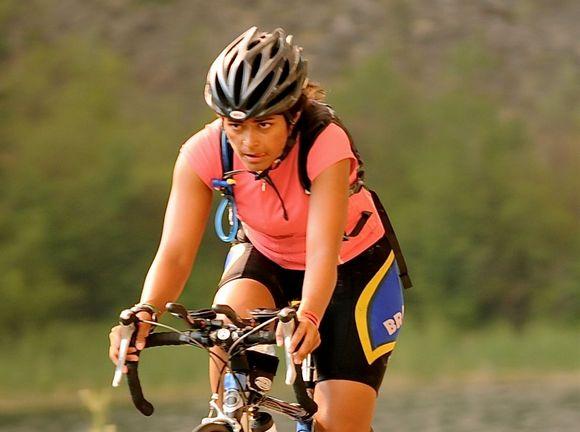

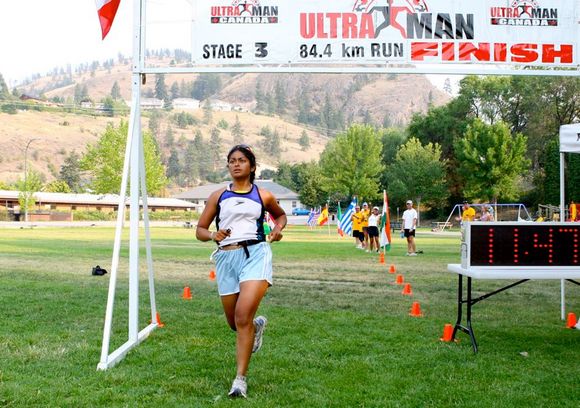
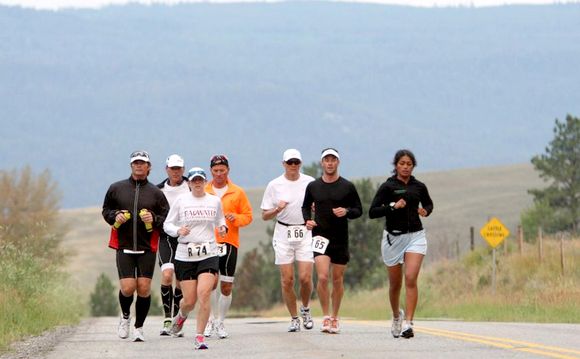
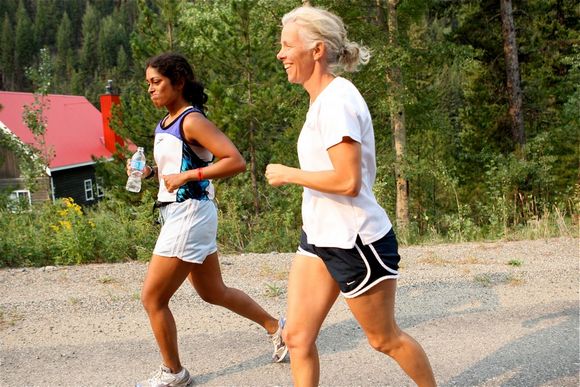
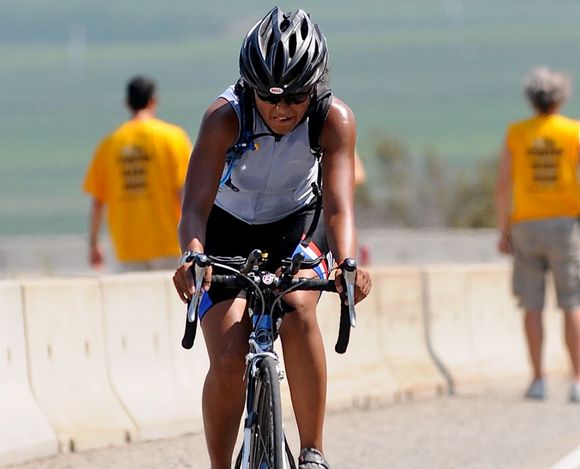
Comment
article